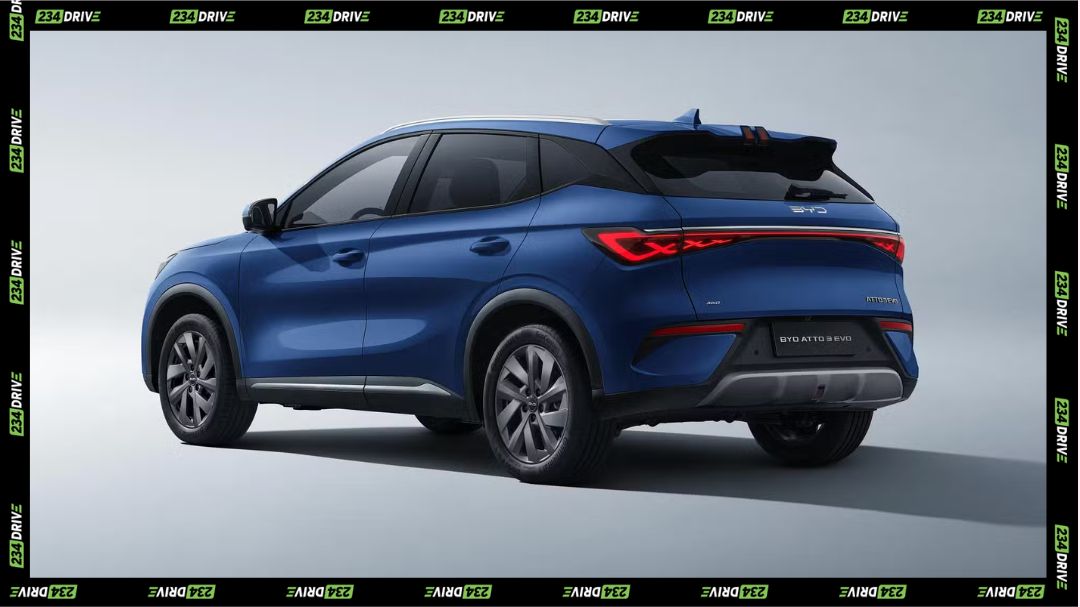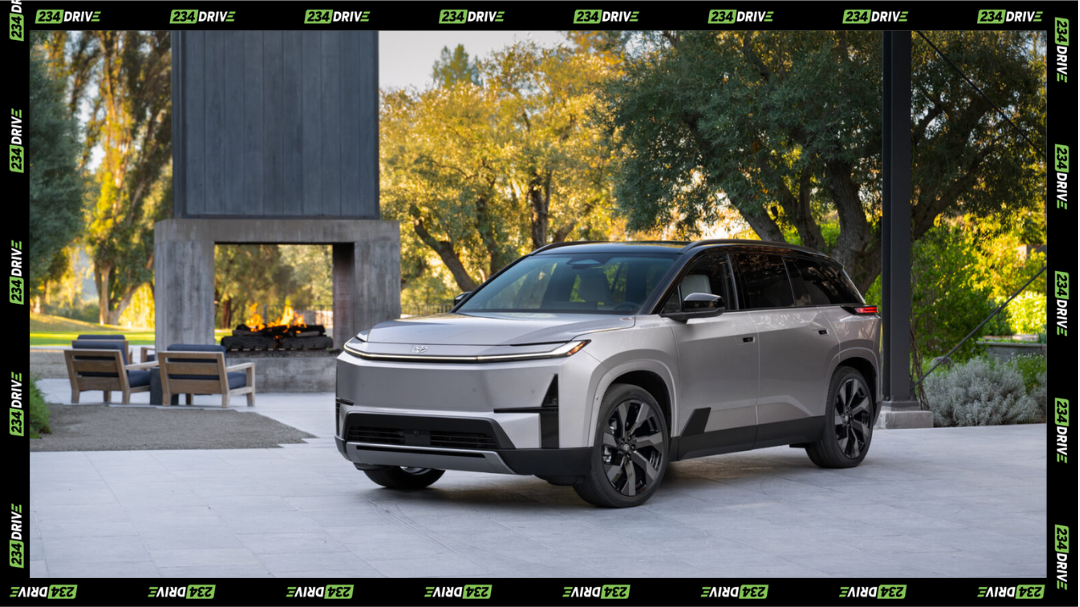Jetour has quickly established itself as a serious contender in Nigeria’s SUV market. Backed by Chery Holding Group, the Chinese automaker focuses on delivering stylish, spacious, and affordable SUVs tailored to everyday driving needs. Its reputation is growing among Nigerian buyers who seek practical alternatives to more expensive Japanese and Korean brands, without sacrificing technology or comfort.

By 2025, Jetour has expanded its lineup to include a wide range of models, each targeting specific categories of buyers—from compact city crossovers to large three-row SUVs. With features such as advanced infotainment systems, adaptive cruise control, and multi-zone climate control, Jetour offers vehicles that combine modern conveniences with competitive pricing. This review explores Jetour’s collection, highlighting exterior design, interiors, performance, and market relevance.
Jetour X50
The Jetour X50 is positioned as a compact city SUV, featuring sleek lines, a bold grille, and LED headlamps that project modern styling. Its compact size makes it well-suited for urban traffic and tight parking spaces, while still offering the elevated stance typical of an SUV.
Inside, the X50 provides a driver-focused cabin with supportive seating, digital displays, and an infotainment system compatible with Android Auto and Apple CarPlay. Powered by a 115 kW engine producing 156 hp, it offers a smooth balance of efficiency and city-friendly performance. With a 45-litre fuel tank, it is designed for budget-conscious drivers who want modern features at an accessible price point.
Jetour X70 Plus
The X70 Plus takes Jetour’s styling a step further, offering a larger body with chrome accents, sculpted panels, and striking alloy wheels. Its design blends premium styling cues with everyday practicality, making it popular among professionals and families.
The interior is spacious, with seating for up to seven passengers. A 145 kW engine producing 197 hp provides solid performance, paired with a 57-litre tank for longer journeys. Multi-zone climate control, a panoramic sunroof, and enhanced infotainment features make the X70 Plus a versatile family SUV capable of handling both daily commutes and road trips.
Jetour X90 Plus
The X90 Plus is a large SUV that commands attention on Nigerian roads with its bold front fascia, wide stance, and distinctive lighting signature. Its elevated ground clearance and muscular styling emphasise capability and presence.
Inside, the X90 Plus offers premium finishes, spacious three-row seating, and advanced tech such as a 12-inch touchscreen. Powered by a 187 kW engine producing 254 hp, it delivers strong performance for larger families or those requiring more space. A 57-litre tank supports extended driving, making it ideal for intercity travel.
Jetour T2
The Jetour T2 introduces rugged styling aimed at buyers seeking off-road capability. It features squared wheel arches, skid plates, and a robust silhouette. Its design signals durability, appealing to Nigerian drivers who encounter rougher terrains.

Equipped with a 187 kW engine delivering 254 hp, the T2 combines power with modern cabin comforts. The interior includes large digital screens, premium upholstery, and off-road assist functions. With a 70-litre fuel tank, it is capable of long journeys without frequent refuelling, giving it appeal for adventurous owners.
Jetour Dashing
The Dashing brings a youthful and sporty flavour to Jetour’s lineup. Its coupe-like silhouette, aggressive front styling, and dynamic contours make it stand out among family-oriented SUVs. LED lighting and alloy wheels further enhance its road presence.
Underneath the sporty looks, the Dashing is practical, offering five-passenger seating and premium technology. A 145 kW engine producing 197 hp ensures smooth power delivery, while a 57-litre tank provides efficiency. The cabin integrates a large infotainment screen, driver-assist systems, and high-quality finishes.
Jetour X70
The X70 is one of Jetour’s early entries into Nigeria, with a traditional SUV silhouette emphasising space and comfort. Its exterior features chrome details, roof rails, and a balanced design that appeals to family buyers.

Inside, the X70 is designed for versatility, offering multiple seating configurations, climate control, and a large infotainment display. With a 108 kW engine producing 147 hp and a 55-litre fuel tank, it is a solid performer for city and highway use.
Jetour Prices in Nigeria (2025)
Jetour’s competitive edge is reinforced by its pricing strategy. New models in 2025 start at accessible figures compared to Japanese and Korean rivals:
- Jetour X50: from about ₦29 million
- Jetour X70 Plus: around ₦37 million
- Jetour X90 Plus: estimated ₦52 million
- Jetour T2: up to ₦61 million
- Jetour Dashing: between ₦60 million and ₦90 million depending on trim
Used Jetour SUVs are also appearing on platforms like Jiji.ng, often starting from ₦15 million, with most being recent model years due to the brand’s relatively new entry into Nigeria. Pricing varies based on customs fees, optional features, and dealer markups, so prospective buyers are encouraged to request direct quotes for the most accurate figures.
Regional Suitability and Lifestyle Fit
Jetour’s lineup fits well within Nigeria’s driving environment. With high ground clearance, robust suspension systems, and flexible interior layouts, these SUVs handle potholes, uneven roads, and long-distance travel effectively. For Nigerian families, the three-row options like the X70 Plus and X90 Plus provide practical space, while compact models like the X50 cater to younger professionals in urban areas.
Local dealerships in Lagos, Abuja, Benin, and Port Harcourt make Jetour vehicles accessible, and maintenance costs remain competitive compared to premium rivals. While fuel economy is decent, availability of spare parts and after-sales support will be critical in ensuring long-term adoption.
Comparisons with Segment Rivals
When compared to segment leaders such as the Hyundai Creta, Kia Sportage, or Toyota RAV4, Jetour’s advantage lies in pricing and feature-to-cost ratio. While it may not yet match the long-standing resale value or brand prestige of Japanese rivals, Jetour undercuts them in affordability, offering similar tech and comfort features at lower prices.
Durability and resale are areas where Jetour will need to prove itself over time. Korean and Japanese brands maintain strong resale in Nigeria due to decades of trust, but Jetour’s aggressive warranty packages and growing presence in African markets show potential for improvement.
Conclusion
Jetour’s SUVs combine style, practicality, and affordability, making them an appealing option for Nigerian buyers in 2025. From the compact X50 to the rugged T2 and family-oriented X90 Plus, the lineup covers a wide spectrum of needs. While resale values and brand prestige are still developing, Jetour’s competitive pricing and growing dealership network position it as a serious disruptor in the Nigerian SUV market.
Would you consider a Jetour SUV over established rivals, or do you prefer the proven track record of brands like Toyota and Hyundai?









